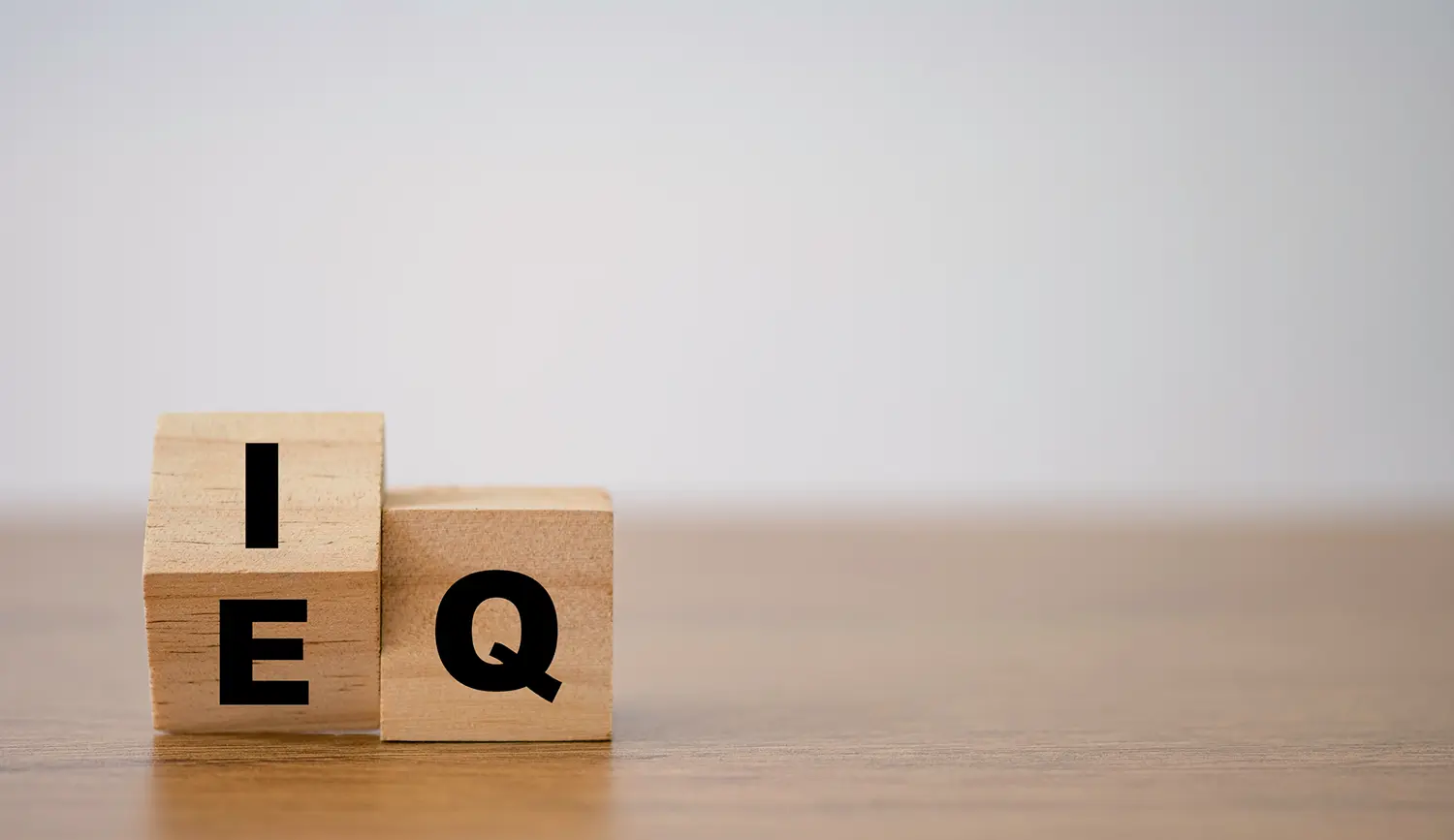

Neal & Irma
In the past, it was an era when people who had high IQ (Intelligence Quotient) lived a better life. However, now we have entered the era when EQ (Emotional Quotient or Emotional Intelligence) is more important than IQ . Because of advanced technology a high IQ does not help one live better anymore because everyone has access to the same information at any time.
U.S statistics show that those who have better personalities are eventually more successful than those who have good grades in school. We have now entered a new era where people with high EQ will become more successful than those with high IQ. [1]
EQ has been shown to be a critical factor in successful leadership. Studies show that leaders’ EQ impacts employees’ job satisfaction. A high EQ leader can motivate people, build a positive work atmosphere, and engender loyalty, trust, and respect from employees and colleagues. High EQ is more than just social skills. It’s an elevated level of awareness where you recognize how your emotions affect those around you. You can stay in control of your emotions, thus helping others stay calm. In addition, they know both their strengths and weaknesses and are willing to take responsibility for their actions.
Business leaders may get to the top by having natural charm and charisma, however as the business or their roles change their EQ may not grow to meet the changing circumstances. A continuing commitment to personal introspection can allow for continued growth as various challenges are encountered. [2]
Introspection is a crucial leadership competency. Introspection is looking inward, and being an introspective leader allows you to examine yourself. As Aristotle said, “knowing yourself is the beginning of wisdom.”
Leaders who are emotionally intelligent foster safe environments, where employees feel comfortable suggesting ideas, being innovative, and voicing their opinions.

Here is a story about how Irma, an engineering manager, became a better leader by improving her EQ through meditation. It improved her job performance, and ability to collaborate with others, gaining better job satisfaction.
Tears shamelessly fell as I gave my boss my resignation, effective immediately. I walked back to my office thinking, “So this is how 3 years of 60+ hour weeks end.” I was angry and hurt by his words that I was the weakest link in his management team. That I was at fault for not getting along with the development team – for not completing work on a very important project – and that he wanted to fire me.

I was angry about being blamed for not getting along with the development team, because they intimidated me. It felt safer to work by cutting my team off, away from them. When a colleague urged me to consider collaboration advantages, all I could think about was how I was always left out of discussions with that team. It was so difficult to influence them.
I didn’t dare submit my resume for several weeks. I took refuge in meditation that I had started around that time. Reviewing my life during those meditation sessions slowly showed me how I had worked.
First, I confronted all the anger stored inside me. As I discarded my anger, it revealed that I had been angry with the development team for a long time. I realized my own part in the drama: I had operated in my own bubble world. I was the queen of my own little kingdom, with full control I would not relinquish. It was humbling and painful to see, but freeing. I felt many regrets and was very disappointed in myself. It dawned on me that my boss would have been happier if I had teamed up with the development team. I accepted that their ideas were valid too. My pride often kept me from reaching out to others. I tended to isolate myself instead of building relationships.
Confronting all these things about myself, and freeing myself from them through meditation gave me courage and hope. I emerged a more mature person who could now pick up where I left off and this led to finding my next job.
The team I worked with at this new job was larger and more complex. However, meditation gave me an entirely different perspective that enabled me to step out of my limitations. I overcame my pride, admit things I did not understand and allow others to help me. By collaborating with developers, we were able to complete testing, and I celebrated with them when we met our deadlines. In time, I have come to see my development colleagues as valuable allies whom I respect and listen to, and in turn they respect and listen to me as well.
Daniel Goleman and Richard Davidson recently published a collection of their early meditation studies, Altered Traits. As Harvard graduate students they did extensive research into meditation, and this sparked their interest in emotional intelligence. Goleman states that out of the many studies they carried out 60 of them were first rate studies that made a convincing case for the positive and lasting effects of meditation on EQ. [3]
Meditation allows you to remove obstacles that block your natural emotional intelligence. We become more aware when we eliminate stress, anxiety, distracting thoughts, self-consciousness, and negative feelings. With increased awareness comes increased inner peace, empathy and compassion for others. We break free from our inner limitations which naturally improves our relationships and interactions.
Many executives have stated how meditation has greatly improved their peace of mind, control over their emotions, and overall effectiveness as a leader.
“If you just sit and observe, you will see how restless your mind is. If you try to calm it, it only makes it worse, but over time it does calm, and when it does, there’s room to hear more subtle things–that’s when your intuition starts to blossom, and you start to see things more clearly and be in the present more.” – Steve Jobs
We gradually learn to become more aware of our emotions and others’ emotions, and naturally become more accepting and understanding. Committing to meditative practices will have deep and lasting effects on your pursuit of improving your EQ. Research studies have shown that meditation improves emotional intelligence. [4] [5] [6] These are changes that not only make you a better leader in business but also improve every aspect of your life.
If you want to excel in the new EQ era and have a more joyful, stress-free life, meditation is the most time-tested and proven way to unlock the emotional intelligence that is hidden within yourself.
To learn how to become successful, join our free Meditation for Success Class today! This class will teach you the benefits of meditation and how it can improve your emotional intelligence, leading to greater success in all aspects of your life. Sign up now and start on your path to a more fulfilling and successful future.




